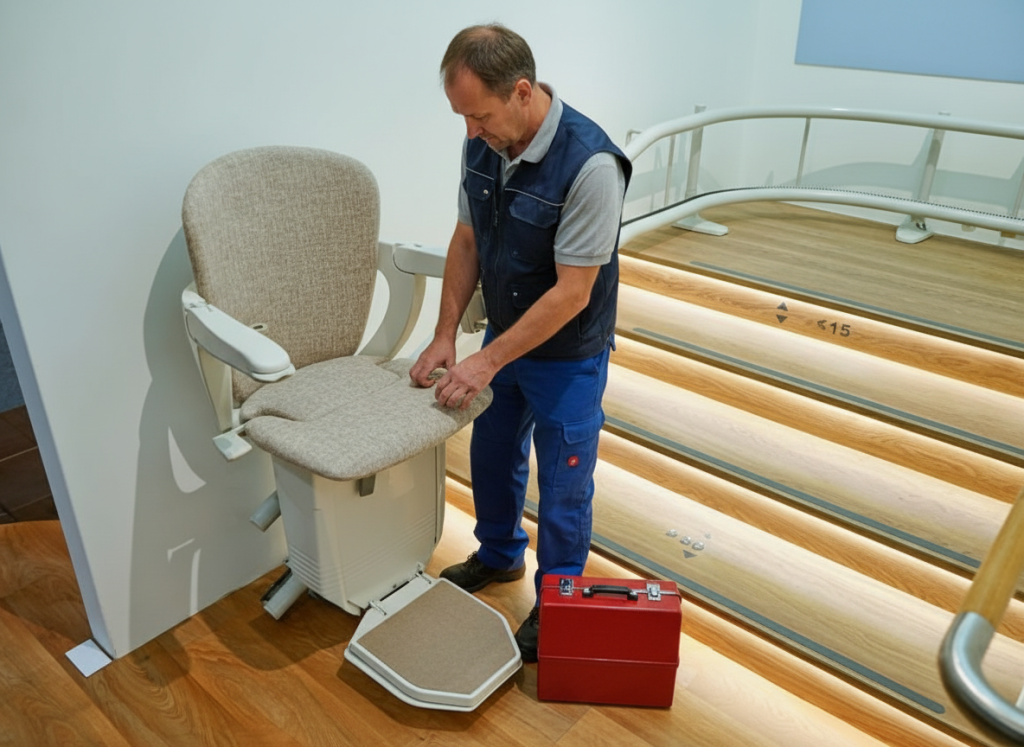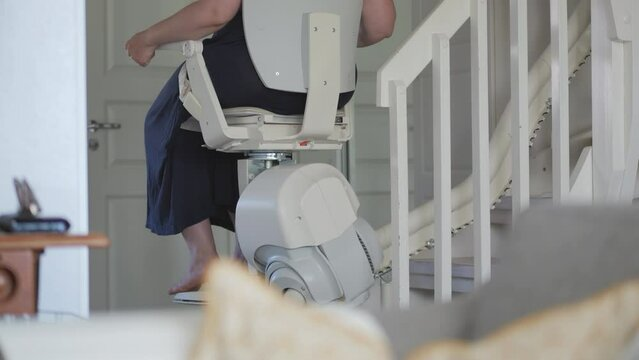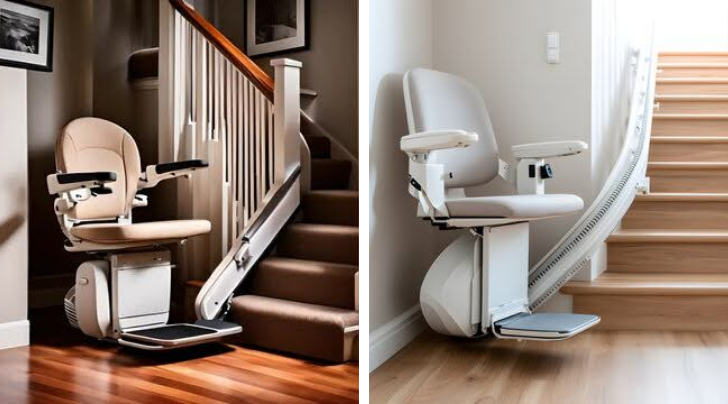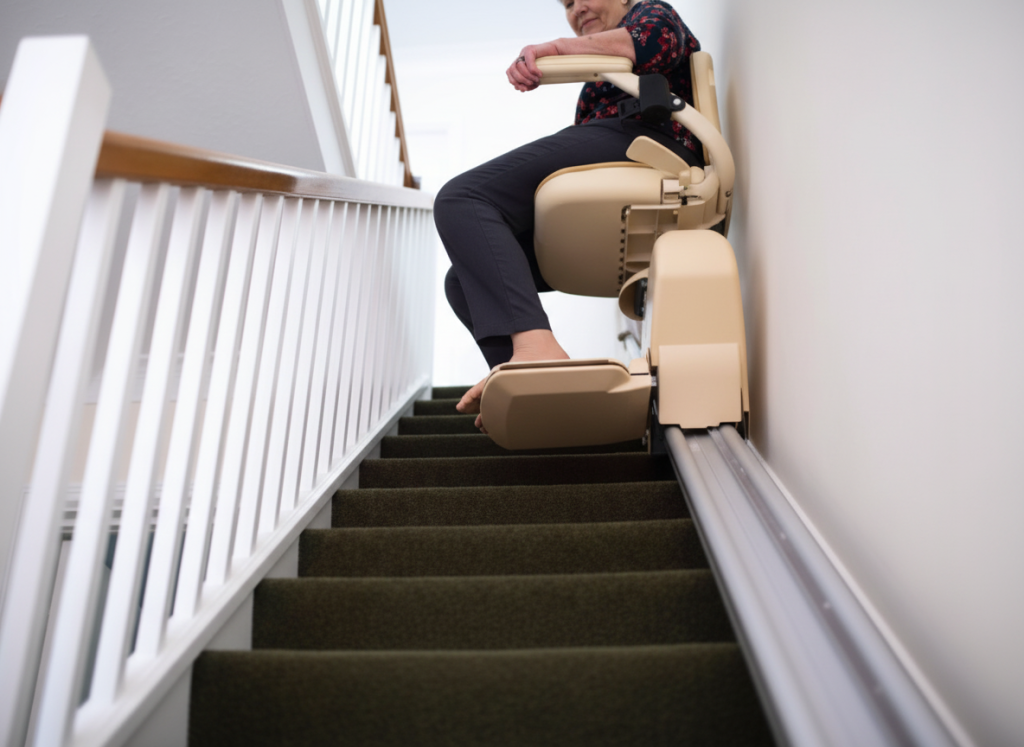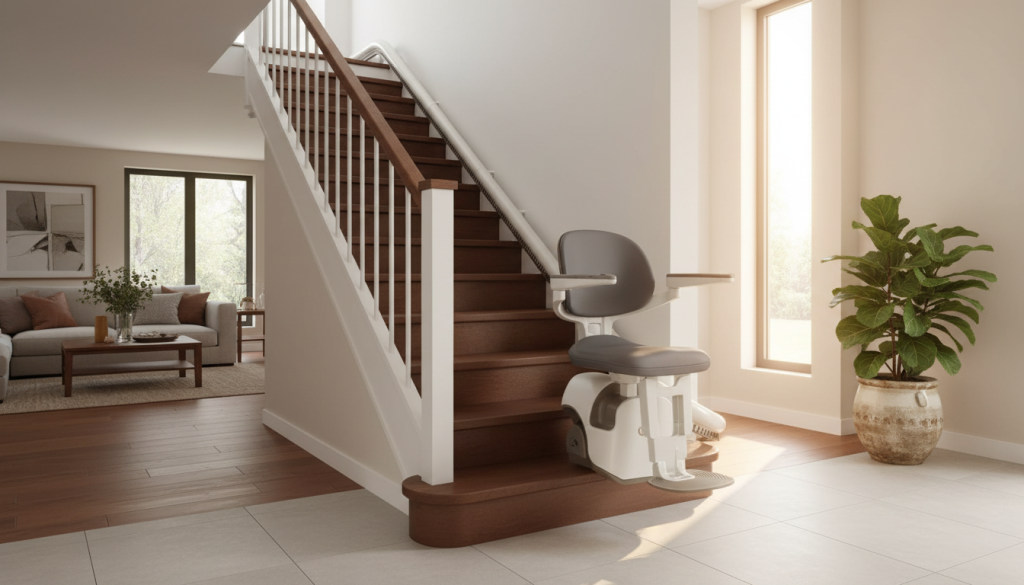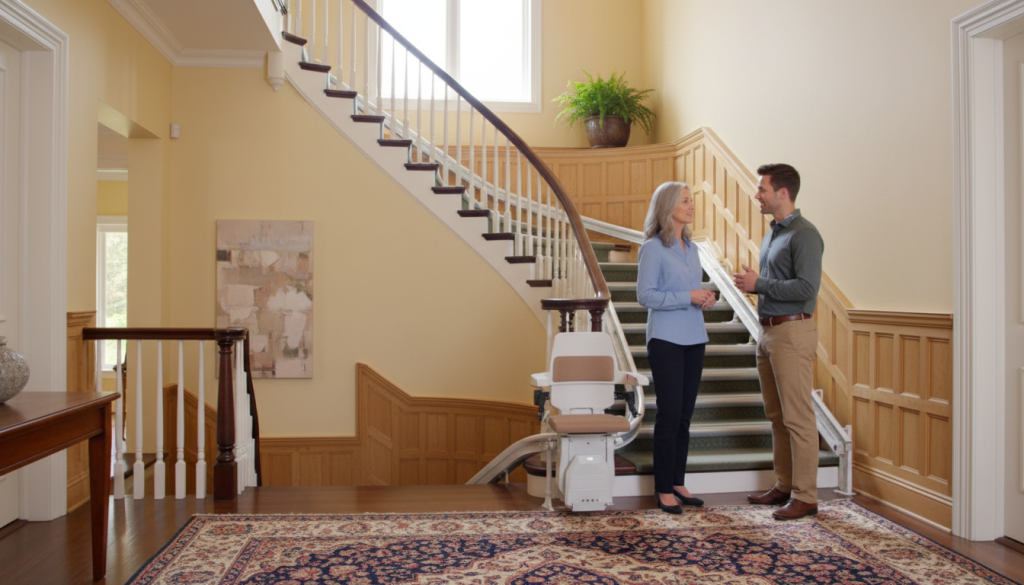
One of the key reasons that more and more people are choosing to have adaptations like stairlifts, ramps, through floor lifts and hoists installed in their property is to enable them to stay in their own home for as long as they possibly can.
A large part of this is because people have a huge emotional attachment to their home. They may have lived there for many years – perhaps even all of their lives, and are very happy. They will probably have many wonderful memories there and their family and friends will probably be nearby. They don’t want to go into a strange environment, on their own, where they don’t know people.
However, another major factor in not wanting to move out of their home is the cost of having to go into a care home. A lot of people worry about having to pay for care themselves or for a loved one. People quite rightly worry that they will have to sell their house and that they won’t have any money left to leave to their children, grandchildren or other relatives.
This is because social care in England is means tested, with only the poorest getting state help towards their costs. An article on the BBC News from July 2015 says that around 4 million people have care needs, which is around half of the population aged 65 and over. Only 850,000 of these qualify for state help however, meaning that over 3 million people who have care needs have to pay the full cost of it themselves. Currently, if your capital, savings and income amounts to over £23,250 then you must pay the full cost of your care, and this can run into thousands of pounds. If you are being cared for in your own home the figure only takes account of savings, stocks and shares. The website Paying For Care says that on average, the cost of staying in a care home in the East Midlands was £525 per week in 2014/2015, which rises to £681 per week if it includes nursing. This equates to £27,300 per year without nursing, and £35,412 per year with nursing. According to the BBC article mentioned above, one in 10 who enter the care system end up paying over £100,000 in fees. To read the article in full, please visit http://www.bbc.co.uk/news/health-30922484.
However, changes to the costs of social care in England are due to be introduced in the government’s Care Act legislation. This was originally due to come into effect in April 2016, but has now been delayed until April 2020. This will see a lifetime cap on care costs set at £72,000, meaning that nobody will have to pay more than £72,000 for their eligible care needs. However, this cap will not include “hotel costs”, i.e. the cost of bed and board if they are living in a care home, and so they will still be charged separately for this. These will be capped at £12,000 per year. This will be the first time that there will be a limit on how much people have to pay for care in their old age.
Changes to the means test are also due to be introduced in April 2020, having been delayed from the original introduction date of April 2016. Currently, any capital and savings you have below £14,250 are disregarded in the means test, and if you have more than £23,250 you will have to fund your own social care. The upper limited will be raised in 2020 to £118,000, and the lower limit will be raised to £17,000. Anyone therefore with assets between £17,000 and £118,500 will be entitled to some financial support for their care on a sliding scale. For more information about paying for permanent residential care, please see this page on the Age UK website: http://www.ageuk.org.uk/home-and-care/care-homes/paying-for-permanent-residential-care/
Despite the proposed changes to the rules, the cost of care is still going to be dramatically more than if you have adaptations like stairlifts, ramps and hoists installed in your home. Even if installing adaptations only delays having to go into a care home, it could still potentially save you thousands of pounds. To find out more about how Obam could help you or a relative, please visit https://obam.co.uk/ or contact our friendly experienced staff who can help you and chat about your options, either by calling 01427 787532 or by email on info@obam.co.uk

